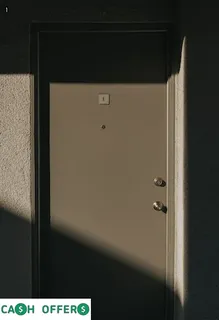Understanding consumer protection in Arkansas is an important part of the landlord-tenant law. Tenants must be aware of their rights and responsibilities when renting a property from a landlord.
This includes understanding the tenant damage liability laws that are specific to Arkansas. If a tenant causes property damage to their rented residence, they may be held liable for any costs related to repairs or replacement.
Likewise, if a tenant fails to pay rent or violates other terms of the lease agreement, they may face eviction and financial repercussions. It is critical for tenants to stay informed on all applicable state laws in order to protect their rights as renters, including understanding tenant damage liability laws in Arkansas.

In Arkansas, landlords and tenants have certain rights that are outlined in state law. It is important for both parties to be aware of their rights and responsibilities in order to protect themselves in a leasing situation.
Landlords must provide safe and habitable housing, while tenants must pay rent on time, maintain the property in a satisfactory condition, and follow all rules of the lease agreement. When it comes to damage liability, there are several factors that come into play.
Tenants may be held financially responsible for any damage or destruction caused by negligence or malicious intent. However, if the damage is due to normal wear and tear, then the tenant will not be held liable for costs associated with repair or replacement.
It’s essential that landlords provide clear communication regarding tenant damage liability so that both parties understand their respective obligations.
As a landlord in Arkansas, understanding tenant damage liability and protecting your security deposit is essential. To protect your security deposit, it’s important to understand Arkansas landlord-tenant law and the rights of both landlords and tenants.
You should also make sure that you have a written lease that states the amount of the security deposit, which must be returned to the tenant within 60 days of termination of tenancy unless there is damage to the rental property. Landlords are required to provide tenants with an itemized list including repair costs for any damages that exceed normal wear and tear.
Furthermore, landlords cannot deduct from a security deposit if they fail to maintain the rental unit or comply with other requirements under Arkansas law. Be sure to keep detailed documentation of all repairs made on the rental property so you can prove that any deductions from a security deposit were necessary.
Additionally, you may want to consider purchasing renters insurance for added protection against tenant damage liability and loss of personal property.

When crafting a security deposit demand letter, it is essential to understand the tenant damage liability laws in Arkansas. Landlords must be aware of the state's statutes regarding the handling and return of security deposits.
To ensure compliance, landlords should incorporate specific language into their security deposit demand letters that outline how they will use the deposit, what deductions can be made from it, when it may be returned, and how long the tenant has to dispute any deductions. Additionally, if a tenant does not adhere to rules outlined in the lease agreement or causes damages beyond normal wear and tear, a landlord may have grounds for withholding part or all of the security deposit.
However, in accordance with Arkansas law, a detailed itemized list of damages must accompany any deduction taken from a tenant’s security deposit. This list should include an estimate of repair costs for each item listed as well as photographs of any damages caused by the tenant.
When looking to understand tenant damage liability in Arkansas landlord-tenant law, it is important to have a clear and comprehensive portfolio that outlines the different strategies for both parties. Understanding the legal obligation of tenants and landlords can help protect both parties from potential financial damages.
It is essential that an Arkansas landlord-tenant agreement include a clause outlining the tenant's responsibility for any property damages or destruction caused by their negligence or intentional acts. Landlords should also be aware of local statutes regarding tenant security deposits and other aspects of landlord-tenant law.
Additionally, if a tenant violates the terms of their lease, landlords should consider drafting a notice to vacate specifically detailing why they are being evicted and what actions may be taken against them financially due to any property destruction or damages done during their tenancy. The most successful portfolios also go beyond just understanding the basics of Arkansas landlord-tenant law; they create policies and procedures that will guard against potential issues such as illegal subletting, nonpayment of rent, or failure to maintain agreed upon maintenance standards.
Finally, landlords should ensure regular communication with tenants, including periodic inspections and maintenance checks to monitor any changes in condition of the rental property. Doing so will help protect both parties from unforeseen liabilities in case something goes wrong during the tenancy period.

Arkansas is a great state for landlords, as the laws are very favorable. Tenant damage liability is outlined in Arkansas landlord-tenant law, which can be quite beneficial for landlords.
The law outlines that tenants may only be liable for damages caused by their own negligence or intentional acts. Landlords can also seek compensation from tenants who fail to return the property in the same condition as when they moved in, minus normal wear and tear.
This ensures that landlords have protection against any damages that may occur during a tenant’s occupation of the property. In addition, Arkansas does not require security deposits, meaning that landlords do not need to worry about collecting and holding onto a large sum of money from tenants prior to move-in.
Lastly, the state prohibits retaliatory eviction if tenants make complaints about their living conditions; this allows tenants to feel safe and secure while living in their rental units. All these factors together make Arkansas a landlord-friendly state with strong tenant damage liability protections and legal recourse for both parties.
When creating a rental agreement in Arkansas, it is important to include certain information that will help protect both the landlord and tenant. This includes the amount of rent, the payment schedule, any security deposit and when it must be returned, as well as how it may be used by the landlord.
Additionally, utilities and services included in the rent should be noted. The length of the lease should also be outlined along with any rules or regulations pertaining to subleasing or transfer of occupancy.
It is essential to include details on how damages that occur during tenancy will be addressed and what liability lies with each party. This includes understanding who is responsible for repairs and if there are any fees associated with damages caused by tenants.
Lastly, pet policies should also be included in the rental agreement if applicable.

In Arkansas, both landlords and tenants have rights and responsibilities that must be respected in order to maintain an orderly and functional rental relationship. The tenant is responsible for complying with all terms of the lease agreement, including paying rent on time and taking good care of the rental property.
Landlords are responsible for providing a safe living environment for their tenants and must ensure that any necessary repairs or maintenance are performed in a timely manner. When it comes to damage liability, landlords are typically held responsible if the damage was caused by their negligence or a defect in the property, while tenants are generally held liable for any damages caused by intentional or negligent acts.
Additionally, Arkansas law states that landlords must use any security deposits received from tenants solely to cover repair costs due to tenant-caused damage beyond normal wear-and-tear. Understanding these rights and responsibilities is essential for both parties in order to protect their interests when it comes to tenant damage liability within Arkansas landlord-tenant law.
Understanding the general clauses of Arkansas landlord-tenant laws is essential when it comes to tenant damage liability. The Arkansas Residential Landlord and Tenant Act of 2007 outlines the rights and responsibilities of landlords and tenants, which ultimately governs tenancy in the state.
One important clause involves tenant damage liability, which states that tenants are responsible for any damages they cause to the rental property beyond normal wear and tear. This includes intentional damage or vandalism as well as negligent behavior, such as an accidental fire or flood caused by a tenant’s negligence.
To protect their property, landlords can collect a security deposit from tenants, which is typically equal to one month's rent. If a tenant causes any damages beyond normal wear and tear during the course of their tenancy, the landlord can use the security deposit to cover those repairs.
In addition, Arkansas law also allows landlords to pursue legal action against tenants who fail to pay for damages they have caused. Ultimately, understanding these clauses is key for both landlords and tenants in order to ensure that all parties uphold their end of the rental agreement.

Property owners and managers in Arkansas can access free download resources related to understanding tenant damage liability in landlord-tenant law. These tools provide valuable information about state laws, including the rights and responsibilities of landlords and tenants when it comes to damages.
For example, property owners can learn what constitutes normal wear and tear as opposed to intentional or accidental damage that must be paid for by the tenant. Additionally, they can become familiar with legal remedies available to them if a tenant fails to pay for damages they caused.
Furthermore, property owners can access resources explaining how to calculate deposits, security deposits, and other fees associated with rental agreements. With these resources at their disposal, property owners and managers gain a better understanding of their rights and obligations under landlord-tenant law in Arkansas.
DoorLoop provides an easy way for property managers in Arkansas to keep track of their tenant damage liability. The user-friendly platform simplifies the process of understanding and managing tenant damage liability, ensuring that landlords can properly protect their investments.
DoorLoop's powerful features allow users to quickly access up-to-date information on Arkansas tenant law, creating complete transparency between landlord and tenant. Additionally, DoorLoop offers comprehensive tools and resources to help landlords stay compliant with relevant legislation and efficiently manage their properties.
With its comprehensive suite of tools and streamlined approach to property management processes, DoorLoop is the perfect choice for Arkansas landlords who need a reliable solution for understanding tenant damage liability.

If you are a landlord in Arkansas, DoorLoop can help you understand your tenant damage liability under Arkansas Landlord-tenant Law. DoorLoop offers a helpful demo to landlords so they can learn about the requirements and obligations for landlords in regards to tenant damages.
Through the demo, landlords can gain an understanding of the legal rights and responsibilities regarding tenant damage costs that they may be held responsible for. The demo will also provide an overview of the processes necessary to protect themselves from potential losses due to tenant damages.
With DoorLoop's demo, landlords can learn how to properly assess damages and make sure they are not left with unexpected bills or liabilities. It is important for landlords in Arkansas to understand their rights and responsibilities when it comes to tenant damage liability so they don't end up paying more than they should.
Requesting a demo from DoorLoop is one way that Arkansas landlords can get educated on their tenant damage liability under state law and protect themselves from unnecessary expenses.
DoorLoop’s Services & Terms & Conditions are designed to help landlords and tenants better understand their rights, responsibilities, and liabilities when it comes to Arkansas Landlord-Tenant Law. Before signing up for DoorLoop's Services, users must read and accept the Terms & Conditions which outline the specifics of the liability that each party holds in case of tenant damage.
It is important to note that the Tenant Damage Liability may vary depending on location and be specific to Arkansas Landlord-Tenant Law. Furthermore, tenants should also be familiar with their state laws regarding landlord responsibilities and obligations in order to ensure they are fully protected from any potential legal issues that may arise due to tenant damage.
By signing up for DoorLoop’s Services and accepting its Terms & Conditions, users can rest assured that they have a comprehensive understanding of how Tenant Damage Liability works under Arkansas Landlord-Tenant Law.

In Arkansas, a landlord is obligated to follow certain laws when it comes to the rental application and tenant screening process. As part of their due diligence, landlords must provide written disclosure of the tenant's rights and responsibilities in the lease agreement.
The application process should be detailed and include questions about the applicant's credit history, criminal background check, rental history, employment history, and other factors that could influence their tenancy. Furthermore, landlords are encouraged to use a system of standardized rental forms for tenants so they can easily understand their rights and obligations.
Additionally, landlords must also include language in the lease agreement that clarifies who will pay for damages or repairs caused by the tenant during their tenancy. Finally, Arkansas law requires all prospective tenants to submit a signed statement acknowledging they have read and understood the lease agreement before signing it.
In conclusion, understanding these laws is critical for any landlord looking to ensure a safe and hassle-free experience with their tenants.
When it comes to tenant damage to property in Arkansas, landlords should be aware of the potential consequences. Tenants can be liable for any damage they cause to rented premises beyond normal wear and tear.
The amount of liability depends on the degree of negligence or intentional misconduct of the tenant. For example, a tenant could be held responsible for repairs due to vandalism, theft, or destruction of property.
Damage caused by pets, smoking, household appliances, and plumbing may also result in tenant liability for repair costs. Landlords must also consider whether the damage occurred before or after the lease was signed as this can affect a tenant's responsibility for repairs.
In addition to paying for damages, tenants may face eviction if they are found to have violated certain terms of their lease agreement. Therefore, before signing a rental agreement tenants should understand their duties and responsibilities under Arkansas landlord-tenant law so they can avoid costly fines or other legal actions down the line.

When it comes to evicting tenants in Arkansas, landlords must understand their rights and responsibilities under the law. Arkansas landlord-tenant law requires landlords to give tenants notice of eviction and provide them with an opportunity to dispute the eviction before pursuing legal action.
Tenants may be evicted if they fail to pay their rent, break the terms of their lease agreement, or cause damage to the property. Landlords are not allowed to proceed with eviction until they have notified the tenant in writing.
If a tenant fails to comply with the written notice and still remains on the property, a landlord may file an unlawful detainer lawsuit in court. The court will review evidence presented by both parties and make a decision on whether or not an eviction should take place.
In addition, landlords are responsible for any damage caused by tenants while they are occupying their rental unit, which may lead to legal action if necessary. It is important that landlords understand their rights and obligations when dealing with tenant evictions in Arkansas.
Proactive maintenance practices are a critical component of maximizing returns on investment when it comes to tenant damage liability in Arkansas landlord-tenant law. Regular inspections and preventative maintenance can help landlords identify potential issues before they become costly repairs, thereby reducing the financial burden of unexpected damages.
Landlords should establish well-defined guidelines for tenants regarding property upkeep and damage prevention, such as prohibiting pets in certain areas or requiring adult supervision around hazardous materials. Additionally, having a clear policy for tenant accountability is essential to ensure that tenants understand their responsibility to maintain the property as specified in the lease agreement.
By taking proactive steps to protect their investments, landlords can reduce the risk of tenant damage and effectively manage repair costs associated with tenant liability.

As an Arkansas landlord, it is important to understand the laws surrounding tenant damage liability and how to avoid disputes with your tenants. By being aware of the implications of these laws, you can protect yourself from potential legal issues while also creating a good relationship with your tenants.
First off, always make sure to have a written agreement that clearly outlines the tenant's responsibilities and any damages they are liable for if they fail to fulfill their obligations. Additionally, it is important to thoroughly inspect the property before and after tenancy so that you can document any existing damage or new damage caused by the tenant.
This should be done in writing so that both parties agree on what was already present in the unit prior to occupancy. To further protect yourself, consider requiring tenants to purchase renters insurance as this will cover any accidental damage or theft during their tenancy.
Finally, if there is a dispute between you and your tenant regarding damages or other issues, be sure to calmly discuss them and document all conversations and agreements in writing in order to avoid any misunderstandings down the road.
Technology has become an integral part of our lives and can be a powerful tool for landlords to improve efficiency and compliance with laws governing tenant damage liability in Arkansas landlord-tenant law. By utilizing digital tools like online applications, automated document management, cloud storage, and virtual inspections, landlords can easily keep track of tenant information and potential maintenance issues.
These digital solutions have the added benefit of streamlining communication between tenants, landlords, and property managers, increasing transparency on both sides of the agreement. Moreover, modern technology helps reduce errors made in paperwork by automatically tracking changes, ensuring accuracy throughout the entire process.
In addition to these advantages, automation enables landlords to stay up-to-date with any new federal or state legislation quickly and accurately without overpowering their workloads. Ultimately, technology is a valuable asset in helping Arkansas landlords understand tenant damage liability while remaining compliant with all relevant laws.

Property owners and managers in Arkansas have to be aware of their tenant damage liability when it comes to landlord-tenant law. Comprehensive insurance policies are important for protecting themselves from any potential legal issues that may arise.
Insurance can provide coverage for a variety of damages, from property destruction to personal injury. It is essential for landlords and property managers to understand the specifics of their insurance policy and how it relates to tenant damage liability.
In most cases, the policy should include a clause that covers tenant damage caused by fire, smoke, water, explosions, vandalism, or theft. Additionally, some policies will also cover liability for tenants who cause bodily injury or death to someone on the property.
Property owners need to make sure they are properly insured in order to protect their assets and avoid costly lawsuits in the event of any tenant-related incidents.
In Arkansas, landlords have the right to sue for damages in certain circumstances. Arkansas landlord-tenant law states that a tenant may be held liable for damages to the rental unit if they do not adhere to certain provisions of their lease agreement.
This includes damage beyond normal wear and tear, intentional destruction of the property, or failing to pay rent in full or on time. If a tenant fails to take proper care of the property, they may be held responsible for any damage that results from their negligence, including repairs or replacement costs.
Landlords should understand their rights under Arkansas landlord-tenant law when it comes to tenant damage liability and how they can pursue compensation for damages caused by tenants who breach their lease agreement.

In Arkansas, landlords cannot take the law into their own hands when dealing with tenant damage liability. Landlords are prohibited from retaliatory conduct, such as raising rents, evicting tenants without proper cause or legal notice, or entering a tenant's unit without permission.
Additionally, landlords may not threaten tenants or use physical force against them. For tenant damage liability to be enforced in Arkansas landlord-tenant law, certain steps must be taken by the landlord.
Landlords are not allowed to deduct any amount from a tenant's security deposit for damages that occurred before the tenant moved in. Furthermore, if a landlord chooses to charge tenants for damages caused by their negligence or willful misconduct, proper documentation and proof of the damages must be provided and outlined in writing prior to any deductions being made from a security deposit.
In Arkansas, tenants have the right to rent a property in good condition and with habitable living conditions. Tenants are also entitled to basic amenities such as running water, electricity and heat.
In addition, tenants have the right to receive written notice from their landlord before any eviction or entry into the rental unit. Furthermore, tenants are protected from retaliatory evictions for exercising their rights under the landlord-tenant law.
Additionally, tenants can withhold rent if there is a major violation of the lease agreement that affects health or safety such as rodent infestations or failing to make repairs. Finally, tenants have the right to be free from discrimination due to race, sex, national origin, religion and familial status.
These rights provide protection for tenants in Arkansas when it comes to understanding tenant damage liability in landlord-tenant law.
AR Code 18 17 704 outlines the tenant damage liability policies in Arkansas landlord-tenant law. This code dictates that when a tenant causes any kind of intentional damage to the property being leased, they are responsible for the cost of any repairs or replacement items required to restore the property to its original condition.
Furthermore, if there is any negligence on behalf of the tenant that results in damage to the rented premises, they are liable for costs associated with such damages. In addition, this code also states that should a tenant fail to make necessary repairs within a reasonable amount of time after being notified by their landlord, he or she will be held accountable for any resulting damages that occur due to their inaction.
Finally, AR Code 18 17 704 also stipulates that tenants must take reasonable precautions to protect the rented premises from potential harm and deterioration while they are occupying it.
A: Under Arkansas Landlord-Tenant Law, tenants are liable for any damages they cause to the property beyond normal wear and tear. Security deposits can be used to cover costs associated with tenant damage to the property, but tenants are encouraged to purchase renters insurance to protect themselves against unexpected losses.
A: In Arkansas, landlords are able to evict tenants who cause significant damage to their property. This must be done through a court proceeding and the landlord must provide evidence of the tenant’s damage. If the court finds in favor of the landlord, they may order the tenant to pay costs associated with repairs or alternatively, vacate the premises.